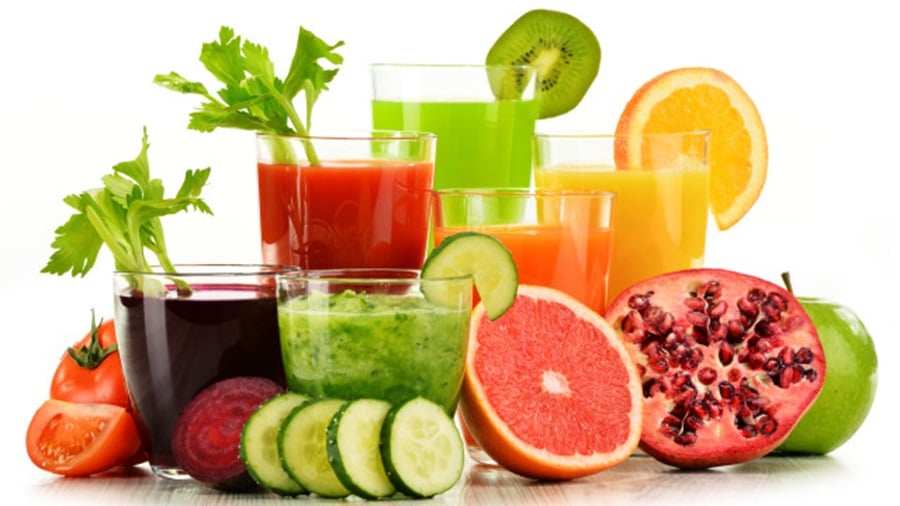Acid reflux, a common digestive disorder, manifests when stomach acid flows back into the esophagus, causing discomfort and a burning sensation. Diet plays a pivotal role in managing and mitigating the symptoms of this condition. Certain foods can exacerbate acid reflux, turning a delightful dining experience into an ordeal of unease and discomfort. Recognizing and understanding these trigger foods is essential for individuals looking to alleviate the harsh symptoms of acid reflux. This article unveils specific foods that, when consumed, might instigate this unwelcome sensation, offering insights into alternatives for a reflux-free diet.
Contents
Spicy Foods
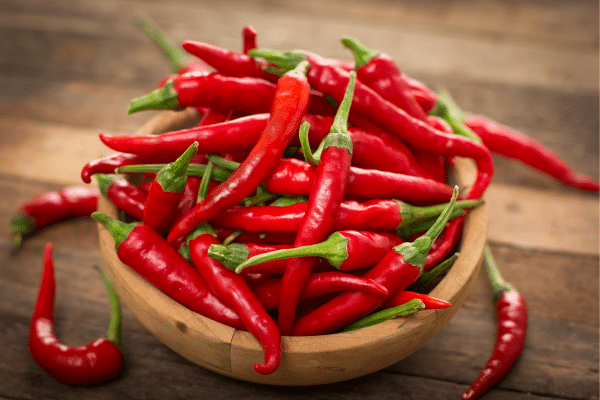
Spicy foods are notorious for igniting a fiery backlash in the form of acid reflux. Capsaicin, the compound that gives chili peppers their heat, can irritate the esophagus, resulting in that familiar burning sensation. Although beloved for their zest and flavor, spicy foods can exacerbate acid reflux symptoms, turning each bite into an agonizing experience for those susceptible.
Not all spicy foods are created equal; some can have a more pronounced effect on individuals with acid reflux. Hot peppers, curries, and spicy sauces can lead to increased acid production. Moderation and discernment in choosing less intense options can play a significant role in managing and mitigating symptoms, making mealtime a pleasurable experience once again.
Citrus Fruits
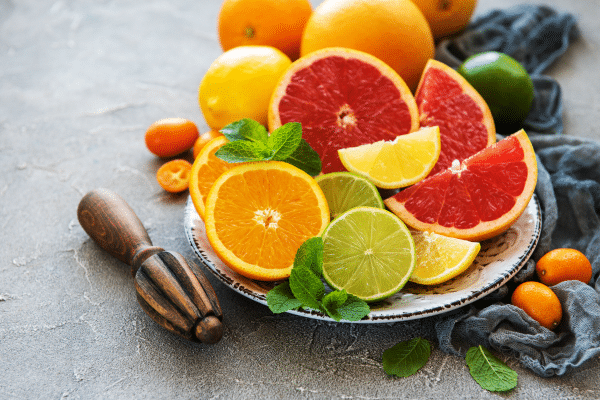
The tangy and refreshing allure of citrus fruits can be irresistible. Yet, for those dealing with acid reflux, oranges, lemons, and grapefruits can be double-edged swords. These fruits contain citric acid, which can increase stomach acid production, and in turn, exacerbate acid reflux symptoms.
But it’s not all doom and gloom for citrus lovers. While it might be necessary to limit the intake of traditional citrus fruits, there are alternative fruits that can be enjoyed without triggering acid reflux. Apples, bananas, and pears, while not citrusy, offer a sweet and satisfying replacement that’s gentler on the stomach and esophagus.
Fatty Foods
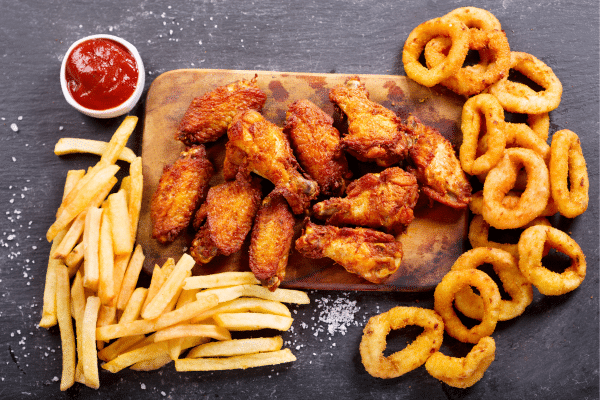
Fatty foods, such as fried items, creamy sauces, and certain meats, often lead to prolonged stomach emptying times. This delay increases the stomach’s pressure, enhancing the risk of acid reflux. These high-fat content foods are not only a challenge to digest but also contribute to the weakening of the lower esophageal sphincter, allowing stomach acid to seep back into the esophagus.
Conversely, focusing on low-fat alternatives can have a noticeable impact on the frequency and severity of acid reflux episodes. Lean meats, grilled or steamed vegetables, and whole grains can create a balanced meal that’s satisfying yet gentle on the stomach. By making mindful choices in preparation and ingredients, individuals can enjoy a diverse menu without triggering discomfort.
Coffee And Caffeine

Many people relish the invigorating jolt of energy delivered by coffee and other caffeinated beverages. However, these drinks can relax the lower esophageal sphincter, allowing stomach acid to escape into the esophagus. The result is often an unwelcome, burning sensation, disrupting the enjoyment that typically accompanies a favorite brew.
Alternatives to traditional caffeinated drinks can offer the warmth and comfort without the associated reflux. Herbal teas, for example, provide a flavorful and aromatic option that lacks the caffeine content known to exacerbate acid reflux. Incorporating these gentler alternatives into one’s daily routine can lead to a significant reduction in acid reflux occurrences while still offering delightful beverages to savor.
Chocolate
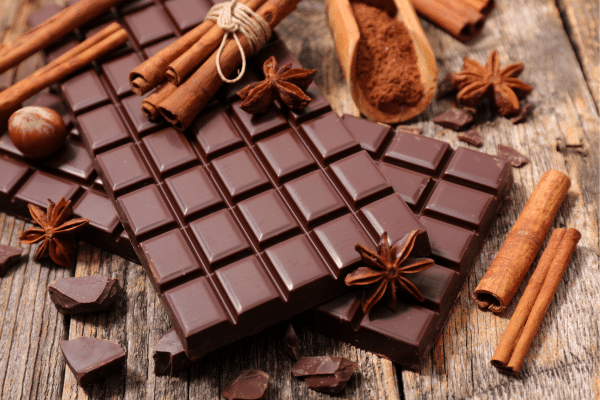
Chocolate, a universally beloved treat, contains components like caffeine, fat, and cocoa that can trigger acid reflux. The delightful, yet potentially problematic, dessert can lead to the relaxation of the lower esophageal sphincter, enabling stomach acid to make its unwelcome ascent. For those prone to acid reflux, indulging in chocolate can often precede discomfort.
However, there is no need to abandon the enjoyment of sweet treats entirely. Many dessert alternatives can satisfy a sweet tooth without triggering acid reflux. Options like fruit salads, non-citrus fruit pies, or even certain low-fat cookies can offer a delightful ending to a meal, minimizing the risk of subsequent discomfort. Each person’s tolerance can vary, so identifying and adhering to individual dietary boundaries is essential.
Carbonated Drinks

The effervescence of carbonated drinks can often lead to an uncomfortable rise in stomach pressure. This increased intra-abdominal pressure encourages the backflow of stomach acid into the esophagus, culminating in the familiar burn of acid reflux. Beverages like soda and sparkling water, though refreshing, can exacerbate this condition.
In pursuit of symptom relief, one might consider non-carbonated alternatives. Still, water, herbal teas, and various juice options not high in citric acid can prove to be refreshing and satisfying. These alternatives quench thirst without contributing to the uncomfortable sensations associated with acid reflux, offering both hydration and comfort.
Alcohol

Alcohol consumption has a twofold impact on acid reflux. It not only increases the production of stomach acid but also relaxes the lower esophageal sphincter. This combination facilitates the undesirable ascent of stomach acid into the esophagus, triggering the painful and bothersome symptoms of acid reflux.
The moderation of alcohol consumption can be a pivotal step in managing acid reflux symptoms. For those seeking alternatives, non-alcoholic beverages or diluting alcoholic drinks can mitigate their impact on the stomach and esophagus. Paying attention to the body’s response post-consumption aids in identifying which drinks to limit or avoid.
The Bottom Line
Navigating the landscape of acid reflux involves identifying and managing specific dietary triggers. Each individual may react differently to certain foods and beverages, so personalized assessment and adjustment are crucial. By becoming attuned to these personal triggers, one can adopt a tailored approach to diet, reducing the frequency and severity of acid reflux episodes. Incorporating alternatives and moderating the intake of known triggers can lead to a more comfortable and enjoyable eating experience, free from the distressing and uncomfortable sensations of acid reflux. A balanced approach, coupled with professional medical advice, paves the way towards effective management of this common condition.


